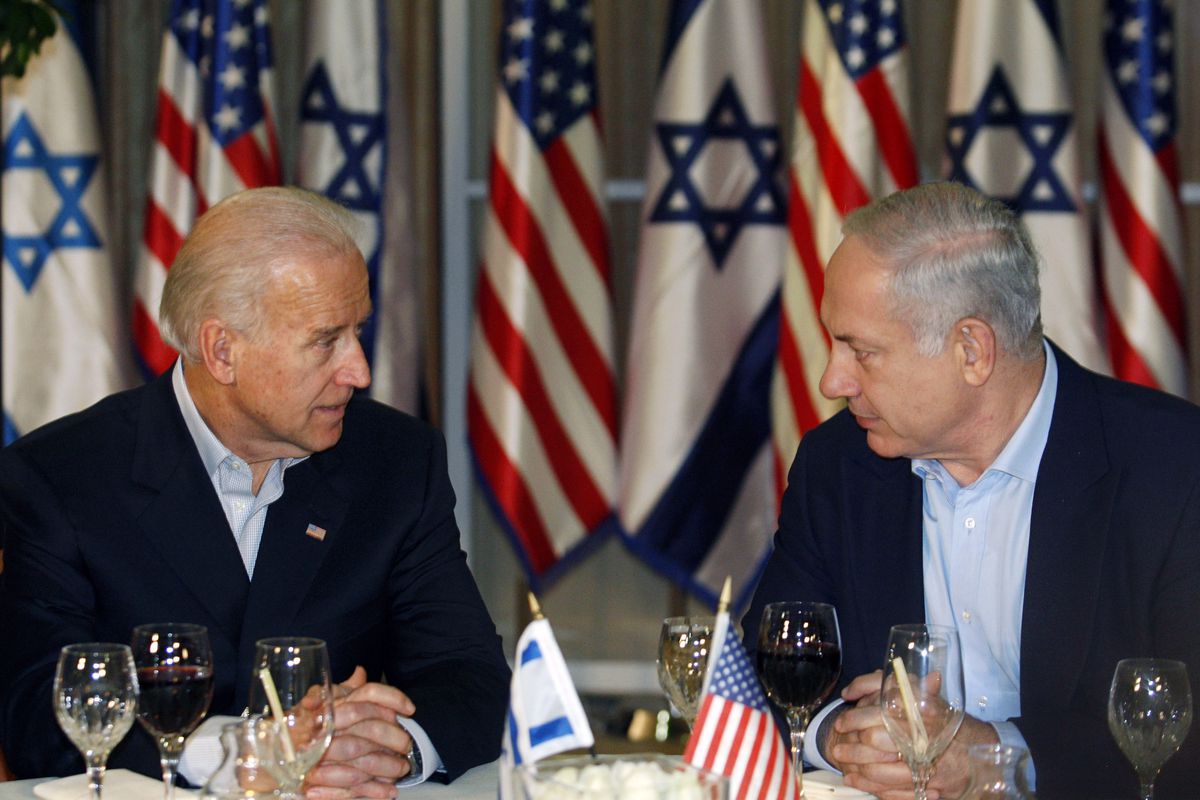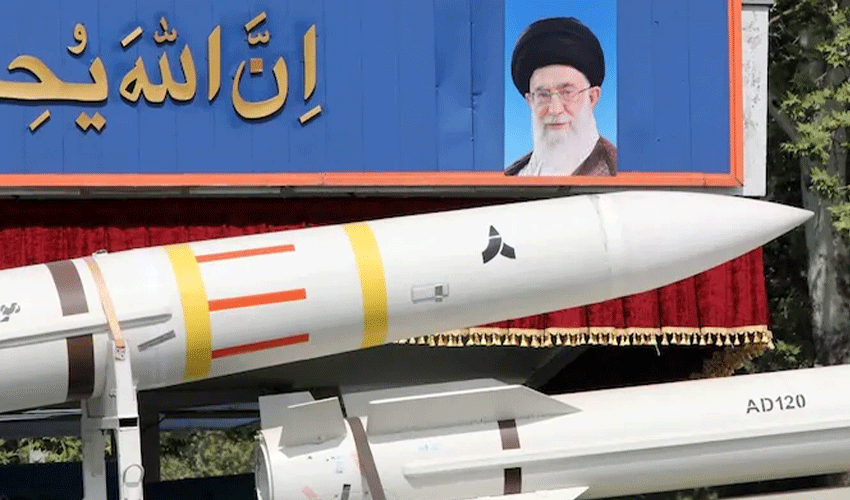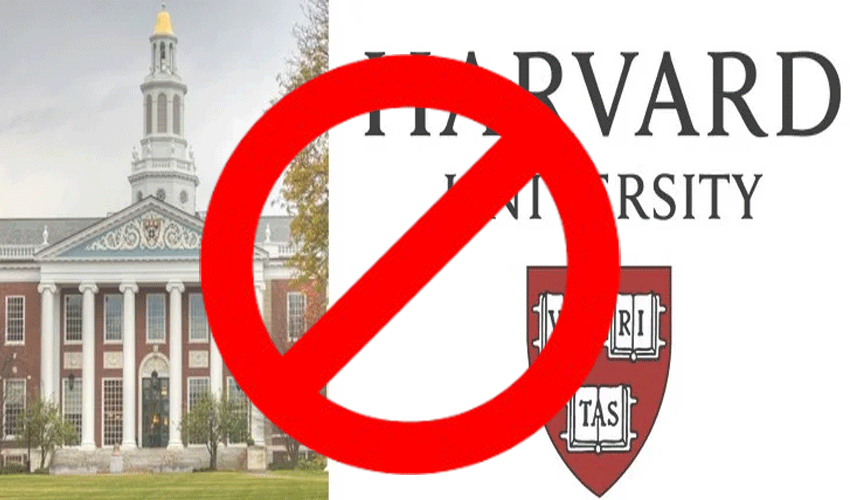President Joe Biden and Israeli Prime Minister Benjamin Netanyahu are at odds on Gaza's red lines, which might lead to a showdown between the two leaders. It is also unclear if the US will cut off military funding if Israel proceeds with a ground attack in the enclave's southern region, according to Reuters.
Since President Harry Truman became the first international leader to recognise the newly founded state of Israel in 1948, the United States has been a steadfast supporter of that country.
However, throughout the years, cracks have shown in the often strong bonds. The following are some milestones:
1948
The first international leader to recognise the newly formed state of Israel is President Harry Truman.
1956
The government of President Dwight Eisenhower, furious at Israel's effort with France and Britain to seize the Sinai Peninsula and Gaza Strip from Egypt, demanded an unconditional pullout from Israel and threatens to cut off essential US financial help to the country if it doesn't.
1967
In a battle with neighbouring Arab states, the US supports Israel. However, Israel's attack on the US spy ship Liberty in international seas has upset ties. There were 174 injuries and 34 American soldiers died.
1973
President Richard Nixon launched an airlift of military gear to Israel in response to Egypt and Syria's 1973 war, both of which lost land in the 1967 battle.
1975
President Gerald Ford's administration in the US threatened to reevaluate US relations with Israel unless it signed a treaty of "disengagement" with Egypt to withdraw from the 1967-captured Sinai Peninsula.
1979
Following discussions at Camp David, President Jimmy Carter is hosting the signing of a peace deal between Egypt and Israel.
1981
The US denounces Israel's attack on the nuclear plant located in Osirak, Iraq.
1982
During a conflict in Lebanon, President Ronald Reagan contacted Israeli Prime Minister Menachem Begin and expressed his "outrage" about Israeli air strikes in Beirut. He then puts pressure on Begin to call for a cease-fire.
1990
Secretary of State James Baker reads out the White House phone number, asking both parties "to call us when you are serious about peace," and indicates that the US is getting impatient with Israel's protracted delays in holding peace talks with the Palestinians.
1991
President George W. Bush Sr. put pressure on Israel to avoid the First Gulf War because he feared that an Israeli strike on Iraq would lead to the dissolution of a coalition led by the United States.
Prime Minister Yitzhak Shamir faces increasing pressure to attend the peace summit in Madrid when Washington refuses to provide $10 billion in financial guarantees that Israel had requested to absorb the influx of Soviet Jews.
Bush argued that the deferral is in the best interests of the peace process and declares that he will not provide the guarantees until Israel stops building settlements.
1992
Prime Minister Yitzhak Rabin provided a restricted suspension of settlement construction, and Bush grants Israel's request for credit guarantees.
1993
Yasser Arafat and Rabin hold hands as President Bill Clinton presides over the signing of a Declaration of Principles on temporary Palestinian self-government.
1998
Clinton organizes a conference in Wye River, Maryland, between Prime Minister Benjamin Netanyahu and Yasser Arafat. Netanyahu consents to let the Palestinians regain authority over more seized land.
2003
Three years after the Palestinian uprising began, President George W. Bush introduced the "road map" peace proposal, which lays out a framework for ending bloodshed and resuming statehood negotiations.
2004
Bush informed Israeli Prime Minister Ariel Sharon that it is "unrealistic" to expect Israel to return to the 1949 armistice lines because of "existing major Israeli population centres," an indirect reference to Jewish settlement enclaves in the West Bank.
2009
Bush informs the Israeli parliament that the US and Israel have an unshakable affiliation rooted in their mutual connection to the Bible, which transcends any treaty.
2010
President Barack Obama's administration is enraged with Israel for announcing, while Vice President Joe Biden was visiting, that additional settler houses will be built around Jerusalem. Hillary Clinton, the secretary of state, refers to the action as "insulting".
2011
Days after Obama boldly said that "the borders between Israel and Palestine should be based on the 1967 lines," Netanyahu gave Obama a lecture in the White House Oval Office.
2015
Obama claims that the world community doesn't think Israel is sincere in its desire for a two-state resolution.
2016
During the final weeks of his presidency, Obama withheld the US veto and therefore permitted the adoption of a UN Security Council resolution denouncing Israeli settlement expansion. It contradicts the US policy of protecting Israel at the UN.
2017
Trump recognised Jerusalem as the capital of Israel, reversing decades of US policy. The new US embassy opened in 2018.
2019
The Golan Heights, which Israel seized from Syria during the 1967 war, is recognised as Israeli territory by the Trump administration. The only nation that does this is the US.
2023
On October 7, US President Joe Biden warned "any party hostile to Israel" against seeking advantage and promises Israel "all appropriate means of support" in response to the Palestinian terrorist organization Hamas' October 7 attack on Israel.
Biden warns Israel that he will lose international support because of the indiscriminate killing of innocent civilians in the war against Hamas.
2024
February 8: Biden stated that he wanted a "sustained pause in the fighting".
February 11: Biden informed Netanyahu that Israel shouldn't invade Rafah without a solid strategy in place to protect the approximately one million civilians who are taking shelter there.
February 27: Netanyahu said he has consistently resisted pressure to end the war prematurely and this stand has popular US support.
March 9: After stating that Israel's impending assault on Rafah would be his "red line" for Netanyahu, Biden later retracts his statement, stating, "I'm never going to leave Israel," and there is no red line.By behaving in a manner "contrary to what Israel stands for," Biden claims he is "hurting Israel more than helping" when it comes to civilian fatalities.
March 12: Netanyahu declared that Israel will continue its military assault on Rafah.



























